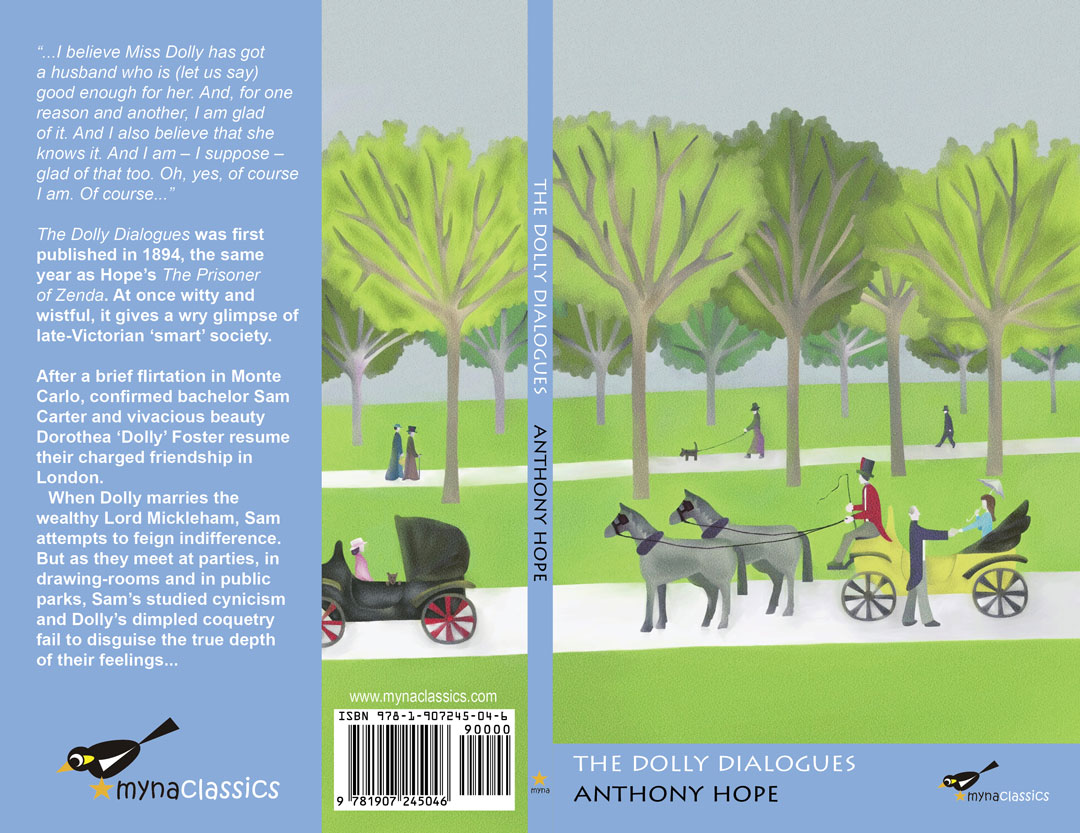
“I believe Miss Dolly has got a husband who is (let us say) good enough for her. And, for one reason and another, I am glad of it. And I also believe that she knows it. And I am – I suppose – glad of that too. Oh, yes, of course I am. Of course…”
The Dolly Dialogues was first published in 1894, the same year as Hope’s The Prisoner of Zenda. At once witty and wistful, it gives a wry glimpse of late-Victorian ‘smart’ society.
After a brief flirtation in Monte Carlo, confirmed bachelor Sam Carter and vivacious beauty Dorothea ‘Dolly’ Foster resume their charged friendship in London.
When Dolly marries the wealthy Lord Mickleham, Sam attempts to feign indifference. But as they meet at parties, in drawing-rooms and in public parks, Sam’s studied cynicism and Dolly’s dimpled coquetry fail to disguise the true depth of their feelings…
Title: The Dolly Dialogues
Author: Anthony Hope
ISBN: 978-1-907245-04-6
Category: Fiction
Pages: 100
RRP: £5.99
Published: January 2010
Anthony Hope (1863-1933) was born Anthony Hope Hawkins in Clapton, London, and educated at Marlborough and Balliol College, Oxford. He was called to the Bar in 1887, and began to write articles and short stories in his spare time, using his middle name as a pseudonym.
In 1890, Hawkins self-published his first novel, A Man of Mark, and, having failed in his attempt to become a Liberal M.P., produced several more works in quick succession, including Father Stafford (1891) and A Change of Air (1893).
In 1894, Hawkins published The Dolly Dialogues, a collection of humorous conversational sketches that had first appeared to great acclaim in the Westminster Gazette. This was followed in the same year by The Prisoner of Zenda, a book that made ‘Anthony Hope’ a household name and spawned a whole new popular literary genre – the ‘Ruritanian’ romance.
The spectacular success of Zenda allowed Hawkins to abandon his promising legal career and devote his time fully to writing. Over the next thirty years he published numerous novels, plays and short stories, including Rupert of Hentzau (1898 – a sequel to The Prisoner of Zenda), The King’s Mirror (1899), Tristram of Blent (1901) and Sophy of Kravonia (1906).
Hawkins married in 1903 and bought a farm in Surrey, where he lived for the remainder of his life. He worked in the Ministry of Information during the First World War and was knighted for his services in 1918.
